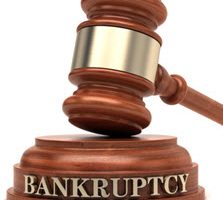Some Key Pre-Bankruptcy Steps

Many financial events, such as investments, largely depend on timing to determine success or failure. Bankruptcy is much the same. If a Chapter 7 or Chapter 13 is filed too early, it can feel like using a flamethrower to kill a housefly. If on the other hand the voluntary petition is filed too late, considerable damage may have already been done, and such damage is sometimes difficult to correct.
As a rule of thumb, if the debtor owes more than about $10,000 in credit card or other unsecured debt, a Chapter 7 petition is probably a good idea, because that amount is more money than most people can comfortably afford to repay. If secured debt is the issue, and the debtor is more than 60 days delinquent, a Chapter 13 petition is probably a good idea, because adverse action — perhaps including pre-foreclosure — is probably just around the corner.
Initial Assessment
Before taking any concrete steps to prepare, it’s usually important to take just a few moments for self-reflection. In a nutshell, if the debtor is in financial distress due to his or her own choices, the debtor will probably file bankruptcy again sooner or later unless these issues are addressed.
Typically, this process does not take very long. That’s because most people file bankruptcy because of a sudden adverse event, such as a job loss, medical emergency, or divorce. Over two-thirds of Americans have less than $1,000 in savings, so most people simply do not have the resources to cope with such situations.
That being said, some people file bankruptcy because they misallocate the resources that they have. The government most likely had these kinds of preventable bankruptcies in mind when Congress passed the 2005 Bankruptcy Reform Act which required, among other things, pre-debt counseling.
Debt Counseling
All debtors must complete counseling courses before they file their voluntary petitions. In most cases, these classes are simply a formality, but in some cases, such sessions can be very enlightening and empowering.
In most cases, these classes can be completed online in about a half hour for only a few dollars. Before you enroll in a class, be sure that it’s approved by the court where your petition is to be filed, because the list changes frequently.
Qualification
At some point, probably during an initial or followup consultation with a bankruptcy attorney, the debtor must decide what form of bankruptcy to pursue. Sometimes, the means test affects this decision.
To qualify for Chapter 7, the debtor’s household income must be beneath the average income amount for that geographic area. As of May 1, 2017, the amount for a family of four in Indiana is usually $77,566 per year. The number changes every few months, and it also varies according to the debtor’s specific expenses as well as geographic area (it is more expensive to live in Chicago than in Marion).
Contact Experienced Attorneys
Successful bankruptcies begin with good foundations. For a free consultation with an experienced bankruptcy attorney in Chicago, contact the Bentz Holguin Law Firm, LLC. After-hours appointments are available.
Resource:
gobankingrates.com/saving-money/data-americans-savings/


